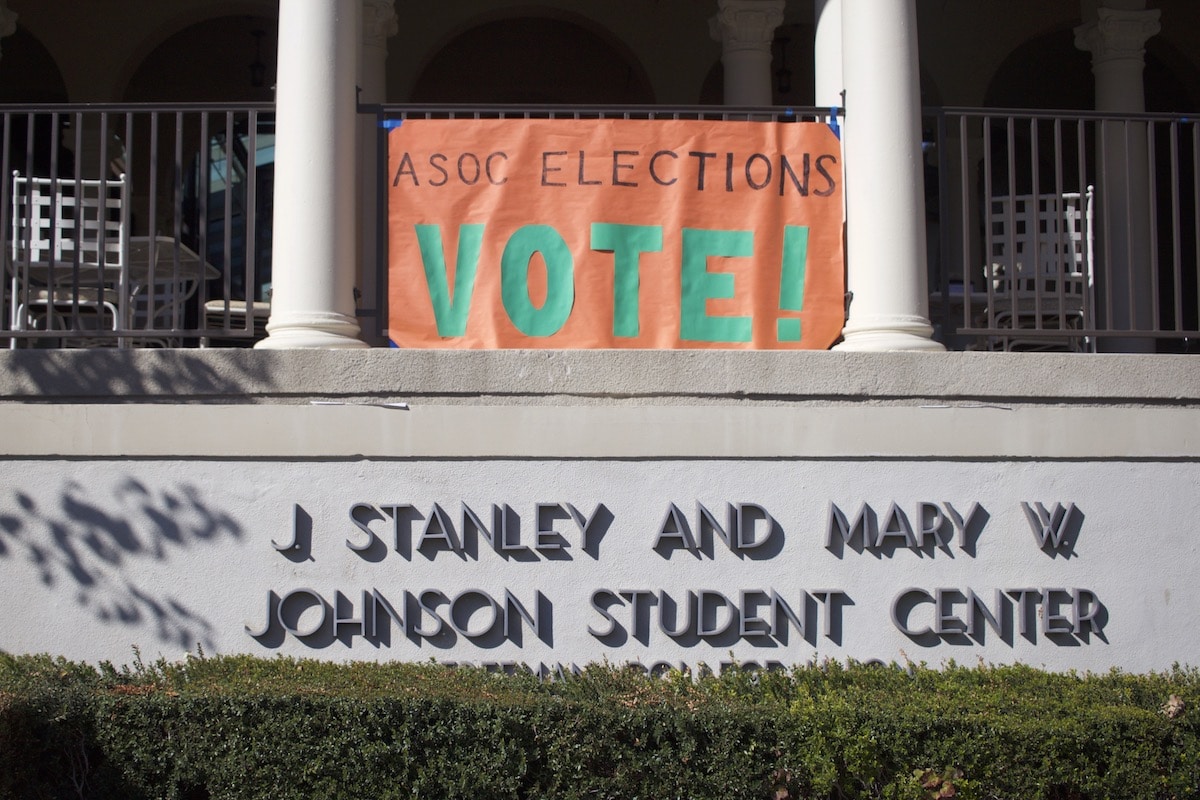
The Associated Students of Occidental College (ASOC) released their election results Feb. 16, announcing the election of Andrea Snyder* (junior) as junior class senator, Isabella Auffenorde (sophomore) as vice president of academic affairs and Wafa Abedin (first year) as first-year class senator. The student body also voted to increase the student body fee, with a vote of 76 percent for and 24 percent against. ASOC has not released the results of the Residential Education and Housing Services (REHS) vote on room draw that will decide on a seniority or lottery-based system. According to ASOC’s announcement email, REHS will release the results of that vote separately.
A total of 433 students voted, according to Tamara Himmelstein, assistant dean of students, director of student life and ASOC Senate adviser. The Honor Board juror position, as well as one junior class senator position, remain unfilled. Two out of five positions on the ballot, VP of academic affairs and junior class senator, ran unopposed this year, according to ASOC Senate President Zachary Solomon (junior). In the Fall 2017 elections, seven of the nine positions ran unopposed.
In Fall 2017, Senate began considering raising the student fee to sustain student services at Occidental. After the vote, the fee, which is currently $288 per student annually, will rise incrementally by $18 each year until 2020, according to ASOC Finance Manager Jarron Williams (senior). Himmelstein said that it has been five years since the ASOC fee last increased.
“In between the last fee increase, we’ve added two new student services and minimum wage has been increasing as well and that’s really impacting the budget and making it tighter and tighter, and so we just need to relieve that pressure,” Himmelstein said.
ASOC, which is governed by Honor Board and Senate, is in charge of the student services on campus, including the Bengal Bus, Bike Share, KOXY radio and The Occidental. According to Senior Class Senator Jeffrey Chang (senior), the student fee affects the entire Occidental student body.
“It’s not only vital for ASOC, but for the rest of the student body, anyone that knows anyone working for a student service, anyone who works for a student service or anyone who cares about paying students a decent amount,” Chang said.
According to Williams, ASOC plans to allocate $15 of the $18 increase per year to Senate and $1.50 to the Sustainability Fund and the Diversity and Equity Board each. This increase will accommodate the rising minimum wage in Los Angeles, which will be $15 an hour in 2020.
“The point of the fee was not just to hold on to the money or keep it in-house, but to actually allocate it the way it should be allocated and support student services the way they are looking to be supported,” Williams said.
While the student body approved the student fee increase and elected a junior class senator, VP of academic affairs and first-year class senator, the second of two open junior class senator positions remained unfilled.
“I think that’s disappointing, and we’re going to have to look at what we can do to fill the position, whether that’s holding another election or, I believe, in the constitution we can appoint someone at some point,” Solomon said. “I would rather have someone be elected to that position than appoint someone to that position.”
No candidates ran for the vacant Honor Board position. According to Ryan Henderson (senior), an Honor Board juror, this vacancy is due to students’ lack of interest in Honor Board.
“This doesn’t just run through Honor Board, this runs across, I think, ASOC,” Henderson said. “I mean, you see it, some people run uncontested, so, to me, that’s a sign of just people’s interest in government and serving on ASOC in the different divisions is low and, I think, there’s different ways of tackling that.”
Henderson believes that if there is more interest in Honor Board and Senate, they can be more effective.
“The more interest and the more people you have running, the better representation we can have in ASOC of the entire population,” Henderson said.
While the vacancy issues persist in ASOC, First-Year Class Senator Abedin remains optimistic and ready to embrace student government at Occidental.
“I really like Occidental, and I kind of just wanted to be involved in the student government process that makes a lot of the fun things that student life does at Occidental happen,” Abedin said. “I love the first-year class so I think it’ll be really fun.”
*Andrea Snyder is a staff writer for The Occidental.
![]()































